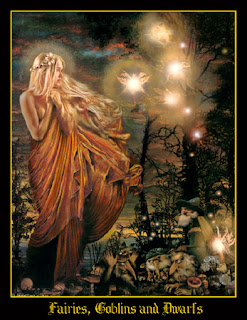William Butler Yeats was an Irish poet born to John Yeats and Susan Pollexfen on June 13 in 1865. He was born and educated in Sandymount, County Dublin, Ireland; but he didn’t stay in Dublin for long. He lived in London and in Sligo in his early years and then went back to live in Dublin. He was educated at Godolphin School, Erasmus Smith High School, and Metropolitan School of Art. His mother also home schooled him for a few years, and told him and his brother, Jack, and his sisters, Elizabeth and Susan Mary, many Irish Folklore stories; which will later in his life show through his poems.
Yeats love life affected his work as well. Maud Gonne and Yeats went back and forth for many years, with Yeats proposing 4 different times and Gonne saying no every time. Yeats had 3 other love interests other than Gonne. They were Olivia Shakespear, Iseult Gonne, and Georgie Hyde-Lees. Olivia Shakespear only lasted a short amount of time and didn’t get too serious. Iseult Gonne was Maud’s 21 year old daughter. When Yeats proposed to Maud for the fourth time and she rejected him, he went after Iseult when she was 21 years old and he was 51. But she rejected Yeats as well. Yeats finally married Georgie Hyde-Lees when she was 25 and he was 51. They had two children together, Anne and Michael. W.B.Y was in the Irish Senate for two years. Yeats took part in questionable virility treatments in 1934 when he was 69 years old. Yeats died at Hôtel Idéal Séjour on January 28 in 1939. He was originally buried in France at Roquebrune-Cap-Martin. However before he died, he asked Georgie to move his body to Sligo after the news of his death died down.
Yeats wrote 402 published poems. His poems reflect his life growing up as a Protestant child, his tragic love life, and the many Irish Folklore he heard as a child. Yeats wasn’t just a famous poet, he also contributed to the Irish Literary Revival and helped create the Abbey Theatre in Dublin. Yeats also received the Nobel Prize in Literature 1923. Many people would say that the Irish Literary Revival wouldn’t have occurred without Yeats influences.






,_William_Butler_Yeats,_unknown_woman_by_Lady_Ottoline_Morrell.jpg)


